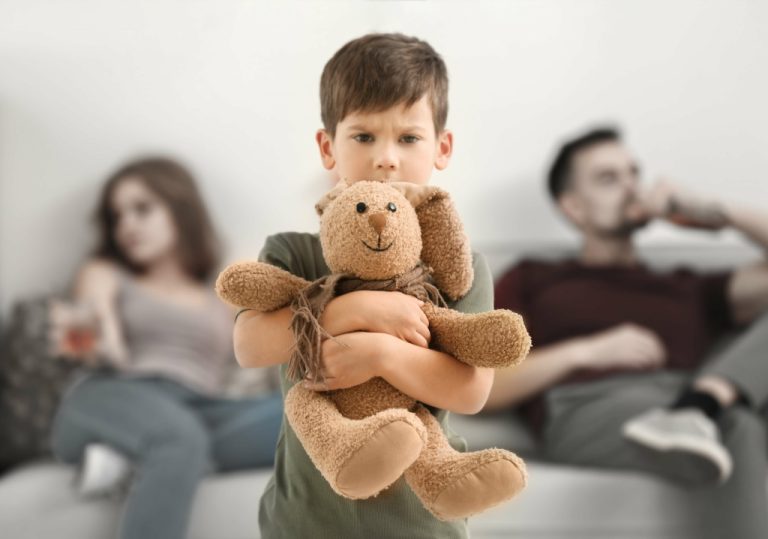Transitional Living Programs for Teens and Young Adults
Transitional living programs for young adults and teens provide a safe, structured environment where young people struggling with mental illness can find the support they need. From childhood trauma to adopted foster care issues, we’re here to help young adults heal. That’s why Embark’s transitional living programs for young adults provide various healing therapies. We have transitional treatment centers for young adults and teens located across the country. To find a supported living program near you, click below or call our specialists for help.
They increased housing stability and improved the chances of getting a job. They also boosted educational outcomes and enhanced overall mental well-being and resilience. Sober living homes offer an intermediate option for those who have completed a treatment program and are not yet ready to return to their homes and regular lives. This transitional phase provides ongoing support while individuals learn to apply newly acquired tools and skills, fostering https://ohmygod.streamor.co/drug-alcohol-rehab-facilities-addiction-treatment-3/ self-reliance and maintaining sobriety within a supportive community atmosphere.
Constituent Services Form
- At Sober Centers of America, we offer guidance and assistance every step of the way.
- The Transitional Living Program Youth Outcomes Study found that these programs helped young adults in several ways.
- Teens and young adults develop essential life skills, from problem-solving to self-care, empowering them to face daily challenges with confidence.
- Two of the homes are female residences, located in Macon and Columbus.
Get info about insurance coverage, treatment programs, and more within minutes. There are over 3500 self-sustaining Oxford Houses in the United States and more than 24,000 individuals in recovery living in these houses at any one time during the year. The Oxford House Model is shared, studied, and growing because it works. It continues to stand the test of time as a leading model in sober living. More than just a shelter, Welcome Home provides 32 transitional housing rooms, with 34 beds, for homeless Veterans and families, including a separate corridor for female Veterans.
These residences can be found in most if not all, states across the United States. A recovering individual can live in an Oxford House for as long as he or she does not drink alcohol, does not use drugs, and pays an equal share of the house expenses. The average stay is about a year, but many residents stay three, four, or more years.
Transitional Living Program
Today Oxford House has more than 20,000 residents at more than 3,500 homes across 47 states and several foreign countries. Generally an individual comes into an Oxford House following a 28-day rehabilitation program or at least a 5 to 10 day detoxification program. Content updated July 10, 2024Oxford House Hubbell is a self-run, self-supported recovery house for recovering alcoholics and drug addicts. Your teen or young adult receives one-on-one support from a dedicated therapist, helping them work through personal challenges and build emotional resilience. Personalized therapy, including individual, group, and family sessions, helps develop coping strategies. Our helpline is available 24/7, free of charge, and without any obligation for you to enter treatment.
Choose from the links below to find Transitional housing
During transitional living, teens and young adults will live in a group home-like environment where residents, staff, and volunteers work together like a family. These group living environments give young adults and teens a safe space. We are here to help your family navigate the challenges of addiction treatment. Through our drug and alcohol rehab placement services, we’ll get to know both you and your loved one, with the goal of providing you with intelligent solutions that are suited to your needs, and budget. In its simplest form, an Oxford House is a shared residence where people in recovery from drug and alcohol addiction can live together and support each other in a drug and alcohol-free environment. DBHDD offers different levels of residency programs to facilitate least restrictive living, promoting recovery-oriented environments, independent living, and maximizing quality of life.
At Sober Centers of America, we offer guidance and assistance every step of the way. We take the time to understand your situation, listening to your needs and preferences to ensure alcoholism treatment we find the right treatment program for you or your loved one. You can stay as long as you like, provided you don’t use drugs and alcohol, are not disruptive, and pay your share of house expenses. Our goal is to help each person build a new life free from addiction by providing resources and encouragement along the way. Whether you’re looking for a listening ear or a community of people who understand what you’re going through, Helping Hands is here to help you on your path to recovery.
Complete Care on Your Schedule
Raymond’s house partners with expecting mothers and new mothers with up to three children under the age of five. For more information on the different programs, you can write the address listed or call the phone number.
I just had to follow the rules, get along with everyone, and work on my recovery. It took me awhile to get used to being with a group of guys like myself. But together we have learned to manage and maintain the house and interact as a family. Each member pays EES (Equal Expense Share) which includes the total amount of rent due for the month as well as the cost of utilities, telephone, cable TV and any other expenses that the house includes in its common expenditures.
Through family therapy, parents and teens work together to strengthen communication, rebuild trust, and create a healthy, supportive home environment. A transitional treatment center offers a secure environment with a stable housing atmosphere free from harmful influences. Residents are expected to maintain an acceptable level of cleanliness and order. They are often transitional homes near me required to attend 12- meetings, abide by a curfew, and follow house rules related to the possession of items such as drugs or alcohol.
- Teens and young adults live in structured, communal group housing settings with on-site supervision and support.
- Each resident’s well-being is closely monitored, and staff are equipped to respond to any challenges, ensuring a safe, stable setting.
- In its simplest form, an Oxford House is a shared residence where people in recovery from drug and alcohol addiction can live together and support each other in a drug and alcohol-free environment.
- Our services are always offered free of charge and are accessible to anyone in need of advice or assistance.
The Oxford House Model provides community based, supportive, and sober living environment. Transitional living programs provide a secure, supervised environment with trained staff who ensure your teen is safe, supported, and nurtured. Each resident’s well-being is closely monitored, and staff are equipped to respond to any challenges, ensuring a safe, stable setting. In the United States, most transitional housing centers are autonomous and have no affiliation with government entities or larger organizations.
Some houses collect EES from its members on a monthly basis while many houses choose to collect EES on a weekly basis. This monthly or weekly amount varies from state to state and house to house and can range anywhere from $125 a week to $250 a week. When you call a house to set up an interview you can ask them how much their EES is. Oxford House, Inc. is a 501c3 nonprofit organization that employs both office and field staff to provide technical assistance to the network of houses to foster the expansion of the Oxford House Model. Each house adheres to the absolute requirement that any member who returns to using alcohol or drugs must be immediately expelled. Day-to-day life is made comfortable with a luxurious array of amenities.




 Digistone Atelier del digitale a Matera.
Digistone Atelier del digitale a Matera.
Commenti recenti